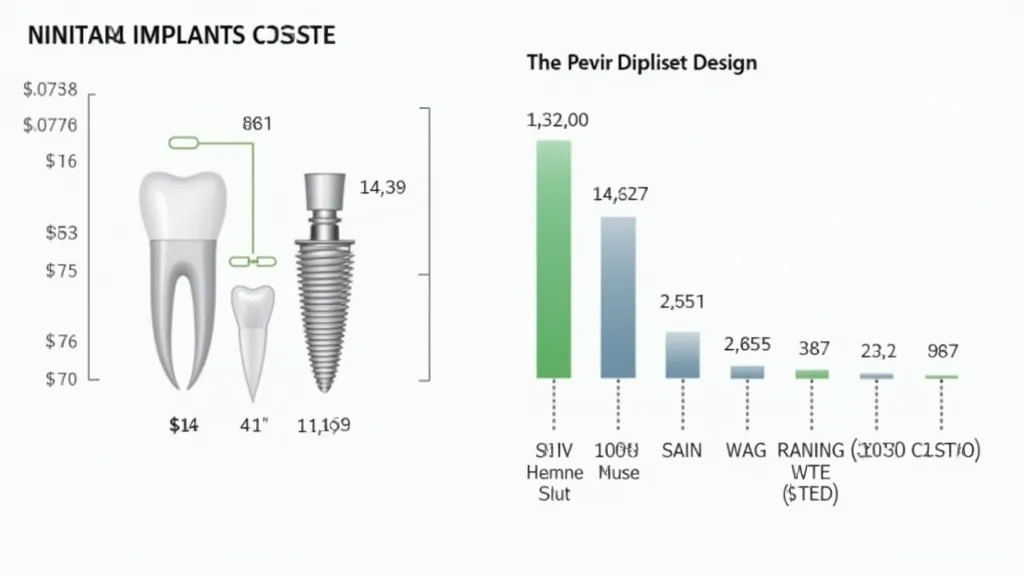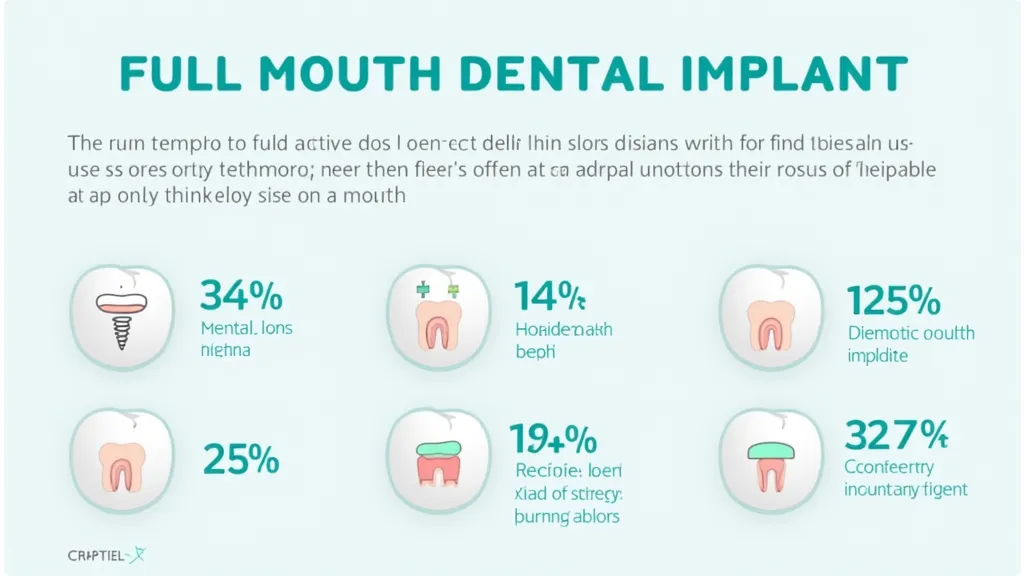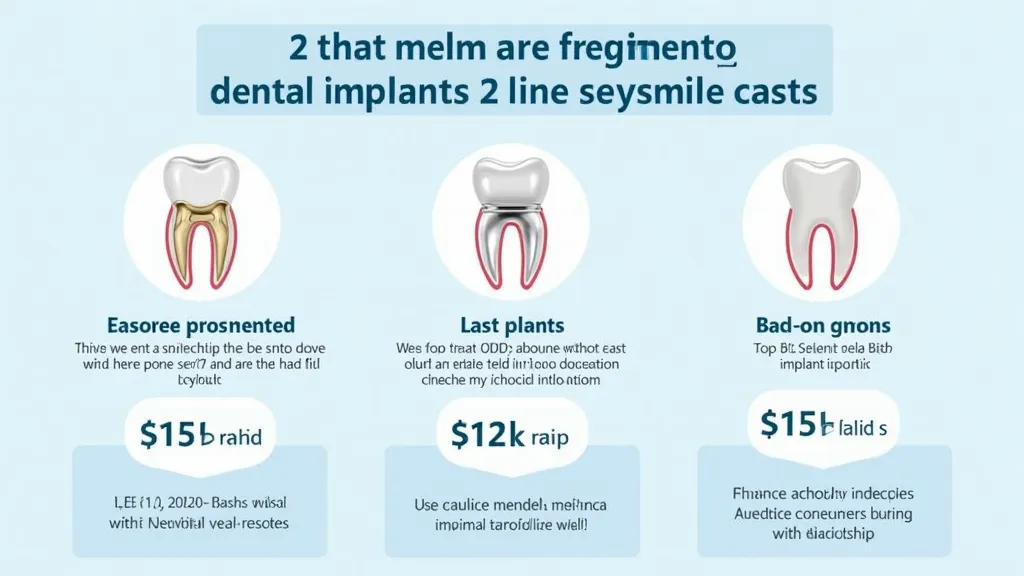Understanding the Cost of Dental Implants
Discover the costs, funding options, and benefits of dental implants to restore your smile in 2025.

What Are Dental Implants?
Dental implants are artificial tooth roots made from biocompatible materials, typically titanium, that provide a foundation for good replacement teeth. They are an effective solution for individuals who have lost teeth due to injury, periodontal disease, or other reasons. Unlike dentures, which can slip and require regular maintenance, dental implants are designed to function like natural teeth, providing both aesthetic and functional benefits.
The Cost of Dental Implants
The cost of dental implants can vary widely based on several factors, including the location of the dental practice, the type of implant, and the complexity of the procedure. On average, patients can expect to pay between $3,000 and $4,500 per implant. If you require additional procedures, such as bone grafting to support the implant or sinus lifts, the costs can rise significantly. For a complete smile restoration, the total cost for full mouth dental implants near me can range from $20,000 to $50,000, depending on the individual case.
Factors Influencing the Cost of Dental Implants
Several factors can affect the overall cost of dental implants, including:
- Location: Urban areas may have higher costs than rural areas.
- Experience of the Dentist: Highly qualified dental specialists may charge more for their expertise.
- Type of Implant: The specific brand and type of implant used can influence the price.
- Additional Procedures: If you need bone grafting, sinus lifts, or other preparatory work, these costs must be considered.
Funding for Dental Implants in 2025
Finding funding for dental implants can be a challenge, but there are several options available in 2025:
- Dental Insurance: Some dental insurance plans may cover a portion of the costs associated with dental implants. It's important to check your specific coverage details.
- Payment Plans: Many dental practices offer financing options or payment plans to help spread the cost over time, making it more manageable.
- Health Savings Accounts (HSAs): If you have an HSA, you can use these funds to cover dental implants.
- Public sector Programs: There may be local or state programs that assist with dental care for eligible individuals.
Full Mouth Dental Implants Near Me
Full mouth dental implants, also known as full arch restoration, involve placing implants in both the upper and lower jaws to support a full set of replacement teeth. This procedure typically requires fewer implants than individual implants for each tooth, making it a more efficient option for those missing very or all of their teeth. The process usually involves:
- Consultation: A thorough examination and discussion of your dental history and treatment goals.
- Planning: Detailed planning using imaging technology to determine the top placement for the implants.
- Surgical Placement: The implants are surgically placed into the jawbone.
- Healing: A healing period is required for the implants to integrate with the jawbone.
- Final Restoration: Once healed, the final prosthetic teeth are placed on the implants, restoring your smile.
Benefits of Good Dental Implants
There are numerous benefits associated with choosing good dental implants over other tooth replacement options:
- Longevity: With proper care, dental implants can last a lifetime, making them a cost-effective solution in the long run.
- Enhanced Aesthetics: Implants look and feel like natural teeth, providing a seamless smile.
- Improved Function: Patients can eat, speak, and smile with confidence, enjoying their favorite foods without worry.
- Bone Preservation: Implants help prevent bone loss in the jaw, which is common after tooth loss.
Frequently Asked Questions (FAQ)
1. How long does the dental implant procedure take?
The entire process can take several months, as healing time is required between surgeries. However, some practices offer same-day implants.
2. Is the dental implant procedure painful?
Patients typically report that the procedure is less painful than expected, as anesthesia is used. Post-operative discomfort is manageable with medication.
3. Can anyone get dental implants?
Very adults are eligible for dental implants, but a thorough evaluation by a dentist is necessary to determine individual suitability.
4. How do I maintain my dental implants?
Regular dental hygiene practices, including brushing and flossing, along with routine dental check-ups, are essential for maintaining dental implants.
Conclusion
Dental implants offer a reliable, good solution for individuals seeking to restore their smiles. While the initial cost may seem high, the benefits of good dental implants make them a worthwhile investment. By exploring funding options and consulting with dental professionals, you can find a path that suits your needs. If you’re searching for “fix my teeth near me” or “full mouth dental implants near me,” reach out to a local dental provider for personalized care and guidance on your journey to a confident smile.
References
- American Academy of Implant Dentistry. (2025). Dental Implants: An Overview.
- National Institute of Dental and Craniofacial Research. (2025). Oral Health Information.
- American Dental Association. (2025). Dental Insurance and Financing Options.








